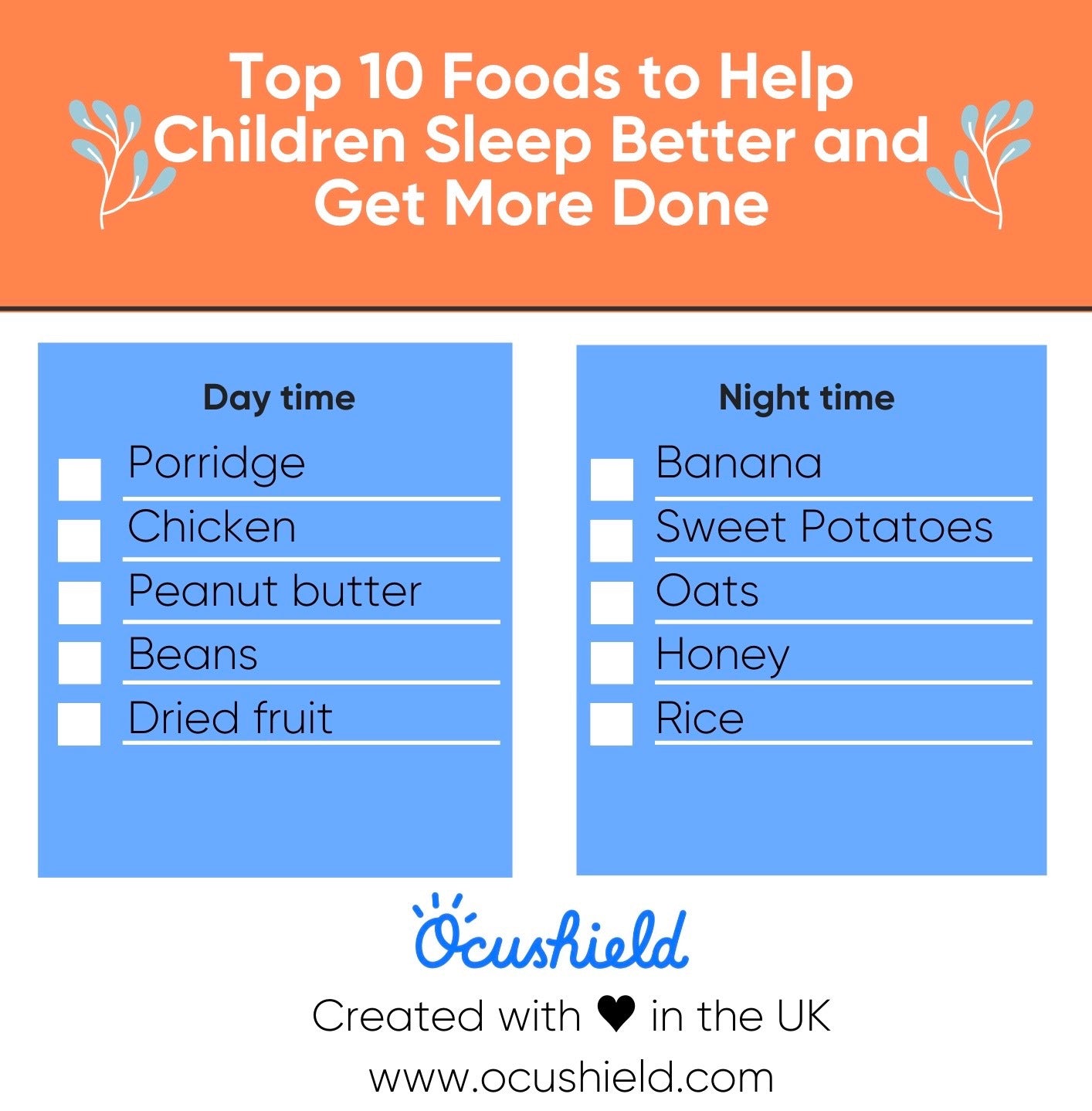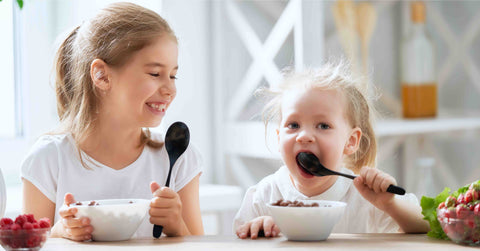Counterbalance the effects of blue light for a happier and healthier child
Are your kids having trouble sleeping at night? Do you find they’re lacking energy during the day?
Blue light emitted from digital devices could be the reason that your children are feeling restless and struggling to get a good night’s rest. As their eyes are still developing in the earlier years, kids are more susceptible to blue light rays and as a result, could be experiencing a lower release of melatonin (the hormone that tells us when it’s time to nod off).
Studies have found that children are spending up to 47.5 hours a week looking at screens. With interactive devices becoming increasingly more present in their education, it could be impacting their energy levels and sleeping patterns.
Besides finding the right balance of screen time, a balanced diet and eating the right foods can help your kids keep their energy up throughout the day and wind down when they hit the hay. This doesn’t mean overhauling your family’s entire meal plan, it’s a lot simpler than that. Start by slowly adopting healthy meal choices and see the benefits for yourself!
We spoke to a bunch of parents about their top 10 foods to help children sleep, and to give them more energy during the day.

Day time: Top 5 foods for a slower energy release throughout the day
-
Porridge: Thanks to their low glycaemic index, the nutrients in porridge are slowly released into the bloodstream, keeping your children going throughout the morning. Quick trick: Adding a sweet treat (like honey or fruit) can help with the lack of flavour.
-
Chicken: For an energy-filled lunch, high-protein options like chicken will keep your kids full for the rest of the afternoon without having to snack before dinner.
-
Peanut Butter: The lower in sugar and salt the better. This children’s classic is always a winner for the fussy eaters.
Quick trick: When mixed with jam (or ‘jelly’ to our friends across the pond!) in a sandwich, it never disappoints.
- Beans: What kid doesn’t love a plate of beans on toast? High in protein, this food will provide the energy your child needs for a fun-packed day.
- Dried Fruit: Dried fruits are packed with iron which assists with oxygen being carried around the body and keeping their minds active.
Quick trick: Dried prunes aren’t always a popular choice amongst children. Why not try raisins or apples?

-
Night time: Top 5 foods to help children sleep
What scientists coin as the ‘sleep tonic’, melatonin is a hormone produced in the brain which helps regulate our body clock, telling us when it’s time for bed. It’s also used for regulating our moods, along with dopamine.
Here are our parents' top five foods to help children sleep, plus a few quick tricks how to serve them up!
-
Bananas: Although usually categorised within the energy-boosting fruits, bananas contain serotonin and melatonin which make us feel good and encourage sleep.
-
Sweet Potatoes: similar to bananas, this high in potassium superfood can help overcome sleep deprivation.
Quick trick: Try swapping these in place of those weekly jacket potatoes.
-
Oats: Rich in vitamins and minerals, oats are also full of amino acids which improve the production of melatonin.
-
Honey: This natural sweetener helps with the release of melatonin and reduces orexin (which is what keeps us alert).
Quick trick: One teaspoon in their evening milk or a cup of tea does the job!
-
Rice: Lighter than most carbs, rice not only helps your kids fall asleep faster but encourages a deeper one too.
Quick trick: The perfect side for all year round. Add it to a winter’s broth or with a light summer stir-fry and keep the kids happy.

It’s all about making those hassle-free changes that won’t get in the way of your family’s everyday routine. Make sure your kids are eating the right foods that can help stabilise their energy and improve their mood during the day, and lead to a successful night’s sleep (for you too!)
-
How we reviewed this article:
Ocushield has strict sourcing guidelines and relies on peer-reviewed studies, academic research institutions, and medical associations.
Our experts continually monitor the health and wellness space, and we update our articles when new information becomes available.
Written By
Dhruvin Patel | BSc Hons, MCOptom, Optometrist
Edited By
Omba Kumwenda | BA, MEng
Medically Reviewed By
Asad Hamir | BSc Hons, Optometrist
Copy Edited By
Tara Tadlock | MA

Leave a comment